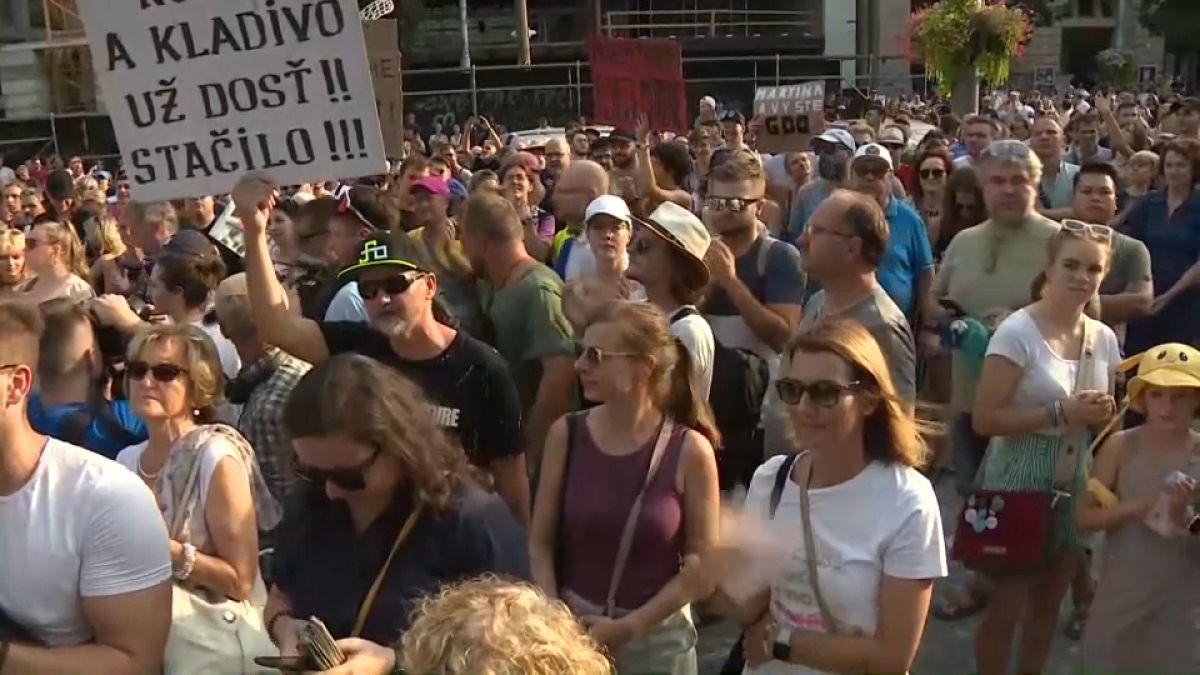Nearly 20,000 people gathered in Bratislava to protest against the Slovak government’s alleged dismantling of the nation’s cultural institutions. The rally was organized by two opposition parties and targeted Culture Minister Martina Šimkovičová and Justice Minister Boris Susko. Šimkovičová recently dismissed the directors of the Slovak National Theatre and the National Gallery, leading to criticism from activists and the public alike.
Critics have accused both ministers of making controversial decisions that undermine the country’s cultural heritage and justice system. Šimkovičová defended her actions, claiming that the opposition and media are attempting to undermine her authority. On the other hand, Susko’s changes to criminal law, including abolishing the special prosecutor service, lowering punishments for corruption, and shortening the statute of limitations, have sparked public outrage.
One of the key issues that fueled public anger was Susko’s decision to suspend the prison sentence of former special prosecutor Dušan Kováčik, who was convicted of corruption. This move further intensified the criticism against the government and led to the organization of the recent protest in Bratislava. The protesters, unlike previous rallies, chose to let their voices be heard without the presence of politicians, emphasizing the importance of people’s opinions in shaping the future of the country.
The protest in Bratislava marked a significant show of opposition against the government’s policies regarding culture and justice. With nearly 20,000 people participating in the rally, the message was clear: the public is discontent with the direction in which the government is taking the nation. The decision to dismiss key cultural institution directors and implement controversial changes to criminal law has not been well-received by the people of Slovakia, leading to widespread criticism and calls for accountability from the administration.
The rally in Bratislava also highlighted the growing divide between the government and the general population. By choosing to silence the voices of politicians and instead focus on the concerns of the people, the protesters sent a powerful message about the need for accountability and transparency in governance. The public outcry against the decisions made by Culture Minister Martina Šimkovičová and Justice Minister Boris Susko demonstrates a growing dissatisfaction among citizens with the current state of affairs in Slovakia.
In conclusion, the protest in Bratislava served as a platform for the public to express their dissatisfaction with the government’s handling of cultural institutions and the justice system. The decisions made by Culture Minister Martina Šimkovičová and Justice Minister Boris Susko have sparked controversy and outrage among citizens, leading to calls for accountability and reform. By coming together in such large numbers, the people of Slovakia have demonstrated their strong opposition to the current administration’s policies and actions, emphasizing the need for change and a more transparent and accountable government.










